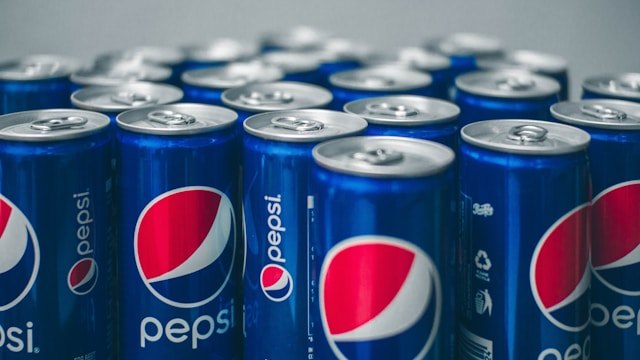Does PEPSI Really Mean “Pay Each Penny Save Israel”? Debunking the Viral Claim
In Nigeria and several other countries, a message has gone viral across WhatsApp groups, Facebook posts, and campus discussions, claiming that the name PEPSI is an acronym for “Pay Each Penny Save Israel.” This has led to emotional reactions from people who feel strongly about the political situation in the Middle East.
But is there any truth to this claim? In this article, we examine the origins of the Pepsi brand, the meaning behind the name, and the facts surrounding the rumor. Our goal is to provide a clear, evidence-based explanation, especially for those who are confused by conflicting messages online.
What Does PEPSI Really Stand For?
Let’s get straight to the point: PEPSI is not an acronym. It does not stand for “Pay Each Penny Save Israel” or any other hidden meaning. The name “Pepsi” is simply a brand name that originated from its early medical and marketing history.
The soft drink was created in the 1890s by Caleb Bradham, a pharmacist in New Bern, North Carolina, USA. Bradham initially called his drink “Brad’s Drink.” He later renamed it “Pepsi-Cola” in 1898, inspired by two main ingredients:
- Pepsin – a digestive enzyme, believed to help with stomach digestion.
- Kola nuts – a source of caffeine and flavoring used in many early soft drinks.
So, Pepsi simply means a drink that helps digestion and contains cola. It was never intended to be an acronym or political statement.
Where Did the “Pay Each Penny Save Israel” Rumor Come From?
This false interpretation is a classic example of what experts call a “backronym”—when people create an acronym after the word already exists. Over the years, especially during heated political moments, certain groups have used this backronym as a form of protest or boycott campaign.
The message has circulated widely in Muslim-majority countries and parts of Africa, often as part of anti-Israel sentiments. However, there is no factual or legal evidence linking PepsiCo (the company behind Pepsi) to the Israeli government or any political funding activities that align with the claim.
What Is PepsiCo’s Official Position?
PepsiCo is a global corporation headquartered in the United States. The company owns several popular brands including:
- Pepsi
- Mountain Dew
- 7UP (in some countries)
- Tropicana
- Gatorade
- Quaker Oats
- Lay’s and Doritos
The company operates in over 200 countries and does business in diverse markets regardless of religion, race, or politics. PepsiCo has never declared that its profits are donated to support any government or political conflict. It is a for-profit corporation focused on global sales and consumer products.
Why Do People Believe These Things?
There are many reasons why rumors like this one spread easily:
- Political tension: During periods of conflict, people look for ways to show support or resistance.
- Social media influence: Platforms like WhatsApp, TikTok, and Facebook can spread misinformation very quickly.
- Lack of media literacy: Many people accept claims without checking credible sources.
- Religious emotions: In countries where religion plays a large role in daily life, people are quick to react to messages that connect brands with religious or political agendas.
However, it’s important to remember that making purchasing decisions based on false information doesn’t lead to meaningful change. Instead, it spreads confusion and may harm innocent businesses and workers.
Examples of Other False Brand Myths
Pepsi is not the only brand that has been falsely accused of hidden meanings. Here are a few others:
- Coca-Cola: Some claimed that if you flip the logo, it says “No Muhammad No Mecca” in Arabic – this has been proven false.
- Nike: Was accused of hiding the word “Allah” in its shoe design. The company apologized and redesigned the shoe, even though it was unintentional.
- Red Bull: Was said to contain illegal drugs and animal blood – a complete hoax.
These examples show how common it is for global brands to be targeted by rumors that can damage reputations and create fear.
How to Verify Such Claims
To avoid being misled, you can always check claims using:
- Snopes.com – a trusted fact-checking site.
- Google Search – compare claims from multiple reputable news outlets.
- Company Websites – check official statements from the brand itself.
- Fact-checking organizations like Reuters, AFP, or Africa Check.
So, Should You Still Drink Pepsi?
That is a personal decision. If you’re avoiding soft drinks for health reasons, that’s fine. But if you’re avoiding Pepsi because of the “Pay Each Penny Save Israel” claim, know that you are acting on false information.
Pepsi is one of the oldest and most widely consumed beverages in the world. People of all religions and races enjoy it daily, and the company’s focus is on product satisfaction, not political campaigns.
Conclusion
In summary, the idea that PEPSI stands for “Pay Each Penny Save Israel” is completely false. It is a made-up acronym that has no connection to the brand’s origin, ownership, or corporate policy. The name Pepsi comes from the word “pepsin,” a digestive enzyme, and has nothing to do with politics or religion.
Before sharing such claims, it’s important to verify them using reliable sources. False information can cause unnecessary division and lead to poor decisions. As responsible internet users and content creators, let’s promote truth and educate others with facts, not fear.
Always think before you forward a message.

